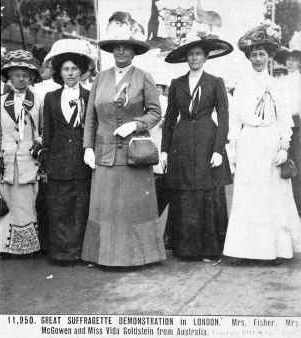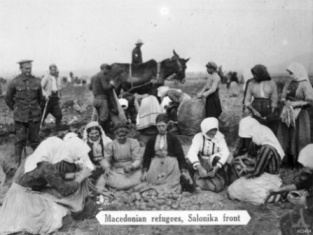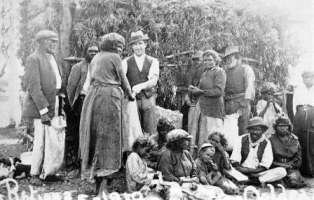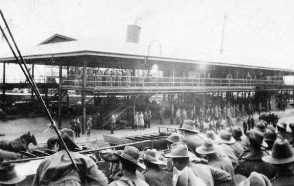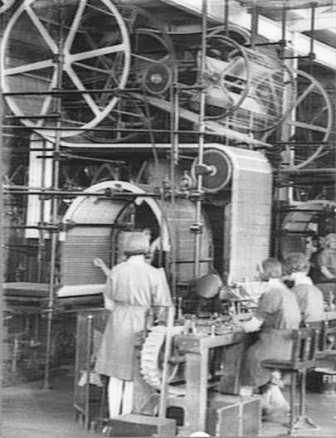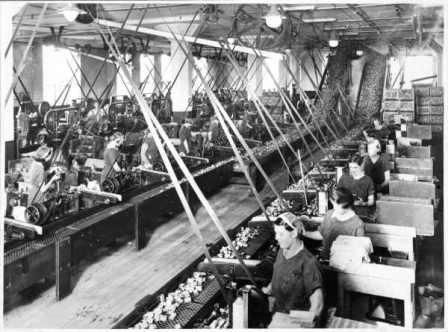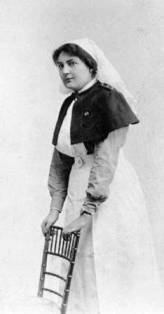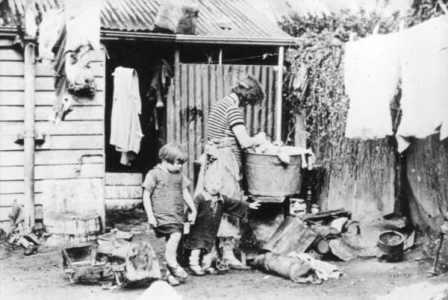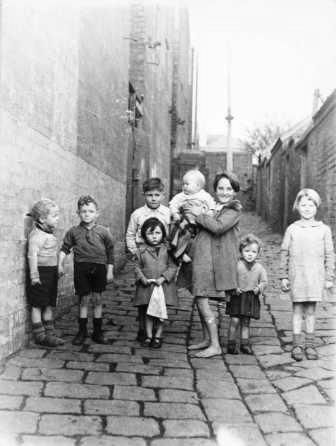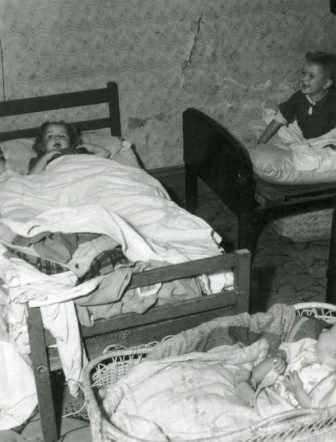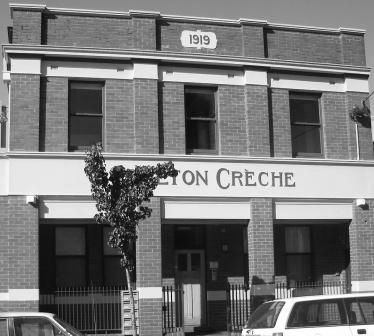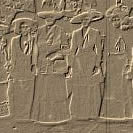 |
WOMEN WORKING TOGETHER |
THIS SITE CONTAINS
1 to 5 - Winning the vote
Chapter 1: The Vote or Bust 1788-1908
Chapter 2: Who Were the Suffragists?Chapter 3: 'United and Representative Agitation'
Chapter 4: Anti-Suffragists 1900-1910Chapter 5: Onwards to Success 1884-1908
6 to 10 - Social Justice and peace
Chapter 6: Moving into the Public World
Chapter 7: 1914-18 War - Pro Peace, Pro and Anti War
Chapter 8: Women's Work in WW1
Chapter 9: 1919-1935 - Surviving
Chapter 10: 1935-1945 Still Surviving
11 to 15 - Finding our voice as women
Chapter 11: 1945 and after - In Our Own Right
Chapter 12: 1970's Protesting - Working Together Again
Chapter 13: Finding Our Voice - Women's Liberation
Chapter 14: Working Collectively
Chapter 15: The 1970's & 80's Broader Women's Movement
16 to 20 - Our legacy our strength our struggle
Chapter 16: In Our Own Hands - Our Bodies
Chapter 17: Whose Right to Choose?- Our Selves
Chapter 18: Environment Matters
Chapter 19: 1990's When the Women's Movement is Quiet
Chapter 20: What a Legacy We Inherit!
Appendix 1: Papers and Interviews
Appendix 2: Songs from the Women's Movement
WOMEN FROM THE
WOMEN'S MOVEMENT
MENTIONED IN THIS WORK.
Abigail Adams
Ada Brougham
Adela Pankhurst
Adrian Howe
Agnes Murphy
Aileen Goldstein
Ailsa O'Connor
Alayne Park
Alex Butler
Alice B Toklas
Alice Henry
Alice Moon
Alice Suter
Alice Walker
Alice Weekes
Alina Holgate
Alisa Burns
Alison Alexander
Alison Dickie
Alison Richards
Alix McDonald
Alma Morton
Alma Thorpe
Andrea Coote
Annie McKenzie
Alva Geike
Amanda Bede
Amanda Biles
Amanda Graham
Amelia Ceranas
Amelia Lambrick
Amira Ingliss
Amy Castilla
Angelina Austin
Angelina Wonga
Ann Jackson
Anna Brennan
Anna Howie
Anna Morgan
Anna Pha
Anna Shaw
Anna Stewart
Anne Barker
Anne Carson
Anne Conlon
Anne Gowers
Anne Phelan
Anne Riseborough
Anne Stewart
Anne Summers
Annette Bear-Crawford
Annie Lister
Annie Lowe
Annie McKenzie
Anthea Hyslop
Antonie Stolle
Ariel Couchman
Audrey Oldfield
Barb Friday
Barbara Creed
Barbara Hall
Barbara Jones
Barbara Kerr
Barbara Marsh
Barbara Van Meurs
Barbara Wishart
Beatrice Faust
Bella Lavender
Belle McKenzie
Bertha Main
Beryl Carter
Bessie Harrison-Lee
Bessie Rainer Parkes
Bessie Rischbieth
Bette Olle
Betty Richmond
Bev Kingston
Bon Hull
Brettena Smyth
Brienne Callahan
Brigid McCaughey
Bronwyn Pike
Candy Broad
Carmel Shute
Carmen Callil
Carmen Lawrence
Carole Ford
Carole Wilson
Caroline Huidobro
Caroline Landale
Carolyn Allport
Carolyn Jay
Carolyn Worth
Carrie Chapman Catt
Carrie Reed
Caryl Friedman
Cath Mayes
Cath Stone
Catherine Anne Spence
Catherine Blackburn
Catherine McLennan
Cecilia John
Charlotte P Gilman (Stetson)
Cheris Kramarae
Cheryl Griffin
Chris Cathie
Chris Chapman
Chris Sitka
Chris Zsizsman
Christina Frankland
Christina Stead
Christine Haag
Churls Kramarae
Claire Berry
Clara Weekes
Clare Wright
Claudia Wright
Colleen Hartland
Constance Stone
Cynthis Carson
Dale Dowse
Dale Spender
Daphne Gollan
Deb Schnookal
Deborah Jordan
Deborah Wardley
Di Fruin
Di Otto
Di Surgey
Diane Crunden
Diane Kirby
Diane Sonnenberg
Dianne Edwards
Dianne Scott
Dianne Wells
Dimity Reed
Divna Devic
Dominica Whelan
Dora Coates
Doris Blackburn
Doris Challis
Doris McRae
Dorothy Turner
Dr Adrian Howe
Dr Aletta Jacobs
Dr Clara Stone
Dr Clare Isbister
Dr Constance Stone
Dr Helene Stocker
Dr Georgina Sweet
Dr Gwen Fong
Dr Janet Bacon
Dr Jocelynne Scutt
Dr Lyn McKenzie
Dr Marie Stopes
Dr Mary Glowrey
Dr Mary Stone
Dr Tamara McKean
Duggie Silins
Edie Turnevich
Edith Hedger
Edith Morgan
Edith Taylor
Edna Ryan
Eileen Capocchi
Eileen Kampukuta Brown
Eileen Unkari Crombie
Eleanor Dark
Eleanor Harding
Eleanor Hobbs
Eleanor M Moore
Elizabeth Cady Stanton
Elizabeth Coady
Elizabeth Hooke
Elizabeth Jackson
Elizabeth Ramsay-Laye
Elizabeth Reid
Elizabeth Rennick
Elizabeth Wallace
Elizabeth Wheelahan
Elizabeth Windshuttle
Ellen Julia Gould
Ellen Kleimaker
Ellen Ward
Elphinstone Dick
E McAllister
Emily Dobson
Emily Greene Balch
Emily Munyungka Austin
Emily Pankhurst
Emmaline Pankhurst
Emmy Evald
Ethel Barringer
Eugenie Davidson
Eva Eden
Eva Cox
Eva Figes
Eve Fesl
Eve Gray
Evelyn Gough
Evelyn Greig
Farley Kelly
Fiona Colin
Fiona Moorhead
Fleur Finney
Flo Kennedy
Flora Eldershaw
Florence Kelly
Frances Fraser
Frances Kissling
Fraulein Von Heymann
Freda Durham
Freda Gamble
Freda Steinberg
Frida Kahlo
Florence Miller
Gay Harris
Gayle Tierney
Gaylene Sneadon
Geraldine Briggs
Geraldine Robertson
Georgina McEnroe
Germaine Greer
Gertrude Bussey
Gertrude Stein
Gill Alecto
Gillian Waite
Gina Lewis
Gisela Kaplan
Glen Tomasetti
Greta Pearce
Gudren Drewsen
Gwendolen Swinburne
Harriet Taylor Mill
Hazel Donelly
Heather Jeffcoat
Heather Osland
Helen Anderson
Helen Caldicott
Helen Dow
Helen Durham
Helen Palmer
Helen Reddy
Helen Robertson
Helen Shardey
Helen Sexton
Hellen Cooke
Henrietta Dugdale
Henry Handel Richardson
Hetty Gilbert
Ilka Elkemann
Ina Higgins
Irina Dunn
Isabel McCorkindale
Isabella Goldstein
Isabella Martinis
Ivy Makinta Stewart
Jaala Pulford
Jacinta Allen
Jackie Fristacky
Jacqui Katona
Jan Armstrong Cohn
Jan Bassett
Jan Harper
Jan Mercer
Jan Testro
Jane Addams
Jane Alley
Jane Greig
Jane Mullett
Janet Bacon
Janet Bell
Janet Elefmiotis
Janet Lindsay Greig
Janet McCalman
Janet Michie
Janet Strong
Janey Stone
Janice Brownfoot
Janice Munt
Janine Bourke
Janne Reed
Jean Bedford
Jean Daley
Jean Henry
Jean McLean
Jean Melzer
Jean Sims
Jean Taylor
Jean Thompson
Jeanette Fenelon
Jeanette Powell
Jeanette Rankin
Jeni Thornley
Jennifer Clark
Jennifer Feeney
Jennifer Lee
Jennie Baines
Jenny Bacon
Jenny Barwell
Jenny Lee
Jenny Mikakos
Jenny Rimmer
Jenny Tatchell
Jesse Marlow
Jessie Ferguson
Jessie Henderson
Jessie Mcleod
Jessie Street
Jenny Pausaker
Jessie Street
Jessie Taylor
Jill Jolliffe
Jill Parkes
Jill Reichstein
Jill Roe
Jo Ellis
Jo MacLaine-Cross
Jo Phillips
Jo Wainer
Joan Coxsedge
Joan Curlewis
Joan E Basquil
Joan Goodwin
Joan Elkington
Joan King
Joan Kirner
Joan Rosanove
Joan Rowlands
Joanna Rea
Joanne Duncan
Jocelyne Clarke
Joe Dolce
Josephine Butler
Josie Lee
Joy Damousi
Joyce Barry
Joyce Johnson
Joyce Nicholson
Joyce Stevens
Jude Perera
Judi Willis
Judith Smart
Judy Cassar
Judy Morton
Judy Power
Judy Maddigan
Judy Small
Julia Church
Julia So So
Julianne Fogarty
Julie McCrossin
Julie Shiels
Juliette Mitchell
Kamla Bhasin
Karen Bird
Karen Gillespie
Karen Milgram
Karen Overington
Karen Silkwood
Karina Veal
Kate Darian-Smith
Kate Gilmore
Kate Jennings
Kate Miller
Kath Williams
Katherine Mansfield
Katherine Suzannah Prichard
Kathie Gleeson
Kathie Sarachild
Kathleen Fitzpatrick
Kathleen Maltzahn
Kathryn Sutherland
Kathy Gill
Kathy Wilson
Katrina Veal
Kay Daniels
Kaye Darveniza
Kay Hamilton
Kay Hargreaves
Kay Setches
Kaz Cooke
Keitha Carter
Kerry Blundell
Kerryn & Jenny
Kris Wilkinson
Lady Helen Munro-Ferguson
Lariane Fonseca
Laura Daniele
Laura Van Nooten
Laurie Bebbington
Lena McEwan
Lesbia Harford
Lesley Hewitt
Lesley Podesta
Lesley Stern
Lesley Vick
Leslie Cannold
Leslie Henderson
Lexie Methereall
Libby Brook
Libby Minifie
Lilian Alexander
Lilian Wald
Lily D'Ambrosia
Linda Aarchen
Linda Rubenstein
Linn Van Hek
Lisa Neville
Lisa Shuckroon
Liz Beattie
Liz Byrski
Liz Dowling
Liz Taylor
Lois Bryson
Lois Young
Lorri Manning
Louisa Lawson
Louisa Remedios
Louise Asher
Louise Walford
Lorna Scarles
Lucy Kowing Wilton
Lucy Paling
Lydia Becker
Lyla Barnard
Lyn Chambers
Lyn Hovey
Lyn McKenzie
Lynne Kosky
Mabel Drummond
Mandy Paul
Maree Gladwin
Margaret Bevege
Margaret Baskerville
Margaret Geddes
Margaret James
Margaret Mead
Margaret McKenzie
Margaret McLean
Margaret Roadknight
Margaret Thorp
Margaret Tims
Margaret Tucker
Margot Oliver
Maree Gould
Maria Mies
Marian Sawer
Marian Simms
Marian Vickers
Marie Kirk
Marie McInnes
Marie Rowan
Marion Harper
Marilyn Beaumont
Marilyn Hillgrave
Marilyn Lake
Marsha Thomson
Marylin Waring
Marilyn Wise
Marj Oke
Marjorie Barnard
Marjorie Barrett
Marjorie Waters
Mary Astell
Mary Bartlett
Mary Brodney
Mary Crooks
Mary Fullerton
Mary Gilbert
Mary Grant
Mary Killury
Mary Leigh
Mary Merkenich
Mary Murnane
Mary Owen
Mary Page Stone
Mary Rogers
Mary Salce
Mary Wolstonecraft
Mary Wooldridge
Matron Brown
Maxine Morand
May Brodney
May Langbridge
May Scheidt
May Smith
Megan McMurchy
Melanie Hall
Melinda Freyer
Melvina Ingram
Meredith Tax
Mesdames: Wallace; Baines;
Lavender; Webb; Singleton;
Morris; Gardiner; Reynolds,
Reid.
Mesdames Savage and Bella Lavender
Miles Franklin
Millicent Garrett Fawcett
Miss A Hume
Miss Anderson
Miss C H Thomson
Miss Cuthbertson
Miss D McRae
Miss E Goldstein
Miss E Hedger
Miss Effie Smart
Miss E Nesbit
Miss Geraldine Rede
Miss H Bridger
Miss H McGowan
Miss Harriet Newcomb
Miss Hilda Moody
Miss Jane Adams
Miss Janet Michie
Miss Jeanette Rankin
Miss Judd
Miss L Savage
Miss Lawler
Miss Lillian Locke
Miss Lillian Wald
Miss Mary Fullerton
Miss Miriam Geach
Miss Olive Gray
Miss R Smethurst
Miss Rapier
Miss Selina Cooper
Miss Simmons
Miss Wollen
Miss Stoddart
Miss V Bonner
Misses: Lewis; McMahon; Helsby;
Moody; Wise; Pascoe; Stewart;
Goodwin; Grant etc.
Misses: Mulcahy; Delaney; Townsend;
McGrath; Clements; Collins; Triffle; Cohen; McLean
Moira Rayner
Mollie Baine
Mollie Dyer
Molly Hadfield
Monika Wells
Morag Loh
Madame E Lorton Campbel
Mrs Anna B Howie
Mrs Bella Lavender Halloran
Mrs Beresford Jones
Mrs Bochinon
Mrs Brown
Mrs Catherine P Wallace
Mrs Chesterfield
Mrs Crawford
Mrs Crutchfield
Mrs D Irwin
Mrs D Monsbourgh
Mrs D Nankivell
Mrs Dwyer
Mrs E Hampton
Mrs E M Nimmo
Mrs E Pethridge
Mrs E Rothfield
Mrs Elliot
Mrs E W Nicholls
Mrs Emily Jackson
Mrs Evelyn Gough
Mrs F J Nicholls
Mrs F Williams
Mrs Florence Kelly
Mrs Fryer
Mrs Fisher
Mrs G Cameron
Mrs Goldstein (senior)
Mrs H A Dugdale
Mrs Harrard
Mrs Harrison Lee
Mrs Jamieson
Mrs Janet Strong
Mrs Jessie Vasey
Mrs Joan Rosanove
Mrs Josephine Butler
Mrs Kelly
Mrs Langdale
Mrs Laura Howie
Mrs Lister Watson
Mrs Lowe
Mrs Lucy Paling
Mrs M Hartley
Mrs M B Wollaston
Mrs M Mayall
Mrs Mabel Drummond
Mrs Malcolm
Mrs Martin
Mrs Mary Baird
Mrs Maudsley
Mrs M McGowan
Mrs Moody
Mrs Moore
Mrs Nance Wills
Mrs Naylor
Mrs O'Dowd
Mrs P Eden
Mrs Press
Mrs Pymm
Mrs Renwick
Mrs Robertson
Mrs Rosanov
'Mum' Shirl
Mrs Singleton
Mrs Smythe
Mrs Steele
Mrs Strong
Mrs Warren Kerr
Mrs Z Lees
Muriel Heagney
Myra Roper
Nan Chelsworth
Nancy Kessing
Nancye Smith
Narelle Dwyer
Nawal El Saadawi
Nettie Palmer
Nicole Steinke
Nina Bondarenke
Norma Grieve
Olive Gray
Olive Schreiner
Onnie Wilson
Pam Brewster
Pam Roberts
Pamela Branas
Pamela Curr
Pat Freeman
Pat Gowland
Pat Martin
Patricia Filar
Patsy Adam-Smith
Paula Trechler
Pauline Kennedy
Pauline Pickford
Peggy Cullinan
Penny Cooke
Penny Farrer
Penny Ryan
Peta Tait
Petra Munro
Philippa Hawker
Ponch Hawkes
Prof. Jo Wainer
Prof. Margaret Thornton
Rachel Avery
Rachel Hesley
Rae Walker
Raelene Frances
Ramona Koval
Rebecca West
Renate Howe
Renate Klein
Renee Miller
Renee Romeril
Rhoda Bell
Rigmor Berg
Rivka Pile
Roberta Meilleur
Robin Morgan
Robin Royce
Robyn Archer
Robyn Martin
Robyn Rowland
Romawati Senaga
Ros Bowden
Rose Scott
Rosemarie Gillespie
Rosemary Brown
Rosie Ferber
Ruby Rich
Ruby Tuesday
Ruth Bermann
Ruth Crow
Ruth Ford
Ruth Schnookal
Sabine Fernheicher
Sadie Kirsner
Sally Mendes
Sally Wilkins
Sandra Bloodworth
Sandra Onus
Senator Olive Zakharov
Sharon Jones
Sheila Bayard
Sheila Ricci
Sheila Wynn
Shirley Andrews
Shirley Swain
Sister Gladys Sumner
Sister Blake
Sister Brown
Sister Hannah
Sophie Slater
Stephanie Moore
Sue Jackson
Sue Mountford
Sue Pennicuik
Sue Reid
Sue Russell
Susan Anthony
Susan Hawthorne
Susie Grezik
Susy Potter
Suzane Fabian
Sylvia Azzopardi
Sylvia Plath
Sylvie Leber
Sylvie Shaw
Tammy Lobato
Tanya McIntyre
Teresa Magna
Terri Jackson
Terry Carney
Tess Lee-Ack
Tess Maloney
Thelma Fry
Thelma Lees
Thelma Prior
Thelma Solomon
Therese Radic
Theresa Lynch
Tjunmutja Myra Watson
Tjuta Ivy Makinti Stewart
Tracey Gurd
Tricia Caswell
Tricia Szirom
Trish Crick
Trudy Wise
Una Stannard
Val Ogden
Val Osborne
Vandana Shiva
Verity Bergmann
Vweronica Shwarz
Vida Goldstein
Virginia Geddes
Virginia Woolf
Vivien Brophy
Vivienne Binns
Wendy Lovell
Wendy Lowenstein
Wendy Poussard
Win Graham
Winsome McCaughey
Yolana Sutherland
Yosano Akiko
Yvonne Margarula
Yvonne Smith
Zara Wildenaur
Zelda D'Aprano
Zoe PhillipsThis work is copyright.
Please acknowledge the source/sources of anything you use.Every effort has been made to trace the people used on this site. Please contact us if you have any questions or concerns about our use of material.
Website advice:
Jean McConnachie
Editorial advice:
Barbara Hall, also Apsara Sabaratnam, Jean McConnachie, Irene Stavrakakis, Margaret Allison, Ramona Audrey, Waratah Rose Gillespie
Legal advice:
Matthew Nicholls
The forthcoming book is funded by Women's Web members and associates: Barbara Hall, Geraldine Robertson, Mary Crooks, Zelda D'Aprano
If you would like to contribute, please contact us.
CHAPTER 9 - 1919 to 1935 - Surviving
'... nor can women as a whole owe obedience to men as a whole, as prescribed by modern governments.'
Vida Goldstein
Ruin 914 Remains of Cathedral at Albert in France State Library of Victoria pi000174Tranter Diary, 22 March 1918: 'As we passed through Albert, the last of the civilians were leaving it - old people, tiny children, all making their way to a safer place, taking with them what few belongings they could. One family we saw resting on the roadside, one tiny child asleep on the baggage and a little girl about 10 years standing with her hands on her hips looking back towards the home they had been forced to leave - a look of defiance and hatred on her face. Scenes like this will live forever.' Bruce Skates & Raelene Frances Women & the Great War, p 33 CUP 1997
1...'WE HAVE SAVED THE WORLD FROM THE GERMANS. HEAVEN SEND SOMETHING TO SAVE THE WORLD FROM US.'
Although peace had been declared the blockade on Germany was continued -
Woman Voter March 27 1919: 'The Starving Babies of Germany - From Miss Harriet Newcomb comes a letter describing the terrible sufferings of mothers and babies in Germany, the result of that unfortunate "military necessity", the British Blockade. To some minds it contains the absolute condemnation of militarism in each and all of its manifestations ... "The pitiful condition of thousands of poor little babies in Germany cannot be exaggerated. It can only be compared with the state of things known in India during one of the worst famines ... The medical authorities in Germany had appealed to England for 1,000,000 india-rubber teats (as) the starving mothers cannot suckle their infants. (The Women's International League sent 1,000,000 teats to Germany. You can support them by ...)" Baillieu LibraryDoris McRae: 'I saw demonstrations of starving people, including women and children, in Germany and realised that there was great hatred of the Treaty of Versailles.' Ruth Crow papers, A Biography of Doris McRae 1893-1988 PHD University of Melbourne
From Women's International League for Peace and Freedom (sent to Vida Goldstein) -
Woman Voter July 3 1919: 'Reflections - Peace has come. Let those who can still deceive themselves celebrate it. It is unspeakable, what there is of it. We have saved the world from the Germans. Heaven send something to save the world from us. A wonderful people we are ... was there ever our like before? We consign to starvation a million people - women, little children and old men - firmly refusing to end our war with them, even when the war with their men has ceased. Meanwhile our parsons bang their pulpit cushions and rant against "those nations that make war on women and children". We bomb defenceless towns from the air, while our press is still yelling for the blood of those who transgressed international law and our gentle women and brave men bear these unnamable things with an equanimity in which can be detected not one quiver of protest ..." Baillieu Library University of Melbourne
Armenian refugee children Auchterlonie Collection State Library of VictoriaEleanor Moore: '... On November 11, 1918, the war in Europe came to an end with dramatic suddenness. All combatants on both sides instantaneously obeyed the order, 'Cease firing !' thus proving once again how completely the operation of war is within the control of its directors and how perfectly able men are to stop it whenever they will.' The Quest for Peace As I have known it in Australia Eleanor M Moore
3...THE ZURICH WOMEN'S 1919 INTERNATIONAL CONFERENCE FOR PERMANENT PEACE
'By the time the International Committee of Women summoned a second Congress in May 1919, the predominant mood was one of disillusionment. The Congress did not after all meet side by side with the official Peace Conference at Versailles, since its delegates from the Central Powers (mainly Germany) would not be permitted to enter France. Instead, a neutral location was selected at Zurich, and here the Congress gathered from May 12 to 19, 1919 ... The three Australian delegates - Vida Goldstein, Cecilia John and Eleanor Moore - had travelled ten weeks to attend the Congress ...
The marks of war were visible for all to see in the faces of the delegates from the defeated countries. Some had been present four years earlier at the Hague, and the change in them was pitiful. Scarred and shrivelled by hunger and deprivation, they were scarcely recognizable ...' Pioneers for Peace - Women's International League for Peace and Freedom 1915-1965 Allen & Unwin 1965
Eleanor Moore: 'The farewell of the German delegation to us all had been a sad one. Their last message was: "Think of us; we are going back into the night." Dr (Helene) Stocker and I had a long talk in a strange mixture of English and German. She was deeply disheartened. She said that she and other German pacifists had assured their people that, once they discarded their militarism, the Allies, and especially the English, were ready to welcome them into a peaceful family of nations. "But," she said, "it is not so. We have surrendered, and their one thought is to crush and starve us." I tried to cheer her, but indeed it was hard to find anything cheerful in the prospect. We know now what sort of future was even then being engendered by the post-war policy of the victors, and what came of it.' The Quest for Peace as I have known it in Australia 1949 Melbourne
Gertrude Bussey and Margaret Tims: 'They were shocked and disturbed at what was happening. Their first act was to demand the raising of the blockade in Germany; immediate relief measures; and, if necessary, food rationing in every country. They believed there would be another war in twenty years if the Versailles treaty went ahead and wrote that it would: "create all over Europe discords and animosities which can only lead to future wars. ... this generation in the heart of Europe are condemned to poverty, disease and despair ..." Pioneers for Peace - Women's International League for Peace and Freedom 1915-1965
The New York Times May 15 1919 :'PARIS, May 14 - 'The conference at Zurich also telegraphed to the (Versailles) Peace Conference a resolution, which had been adopted unanimously, deploring the famine and pestilence in Central and Eastern Europe and urging that the inter allied war organization be transformed immediately into an international peace organization to deal with food, finance, and transport throughout the world. The resolution also urged that relief be organized immediately, and that if the supply of food and transport were not sufficient all countries be rationed. It was added that no luxuries should be transported from one country to another until relief had been sent to all peoples. Among the American women who are attending the Zurich conference are Miss Jane Addams, Miss Lillian Wald, Mrs Florence Kelly, and Miss Jeanette Rankin.'
The 'Zurich Women's Conference Says They "Continue Rule of Force and Spoilation". Paris May 14 - 'The Peace Conference today received from the Women's International Conference for Permanent Peace at Zurich the resolution denouncing the terms of peace with Germany.' Copyright http://query.nytimes.com/gst/abstract.html?res=9807E5DA163AE03ABC4D52DFB3668382609EDE
Macedonian Refugees, Salonika front Australian War Memorial AO34644...THE WOMEN'S RESPONSE TO THE TREATY OF VERSAILLES
Gertrude Bussey and Margaret Tims: 'The Zurich Congress, meeting immediately after the allied peace terms were made public, was the first international gathering to consider and pronounce on the treaty of Versailles. Its verdict amounted to an overwhelming indictment of the terms:
"This International Congress of Women expresses its deep regret that the terms of peace proposed at Versailles should so seriously violate the principles upon which alone a just and lasting peace can be secured, and which the democracies of the world had come to accept.
- By guaranteeing the fruits of the secret treaties to the conquerors, the terms of peace tacitly sanction secret diplomacy, deny the principles of self-determination, recognize the rights of the victors to the spoils of war, and create all over Europe discords and animosities which can only lead to future wars.
- By the demand for the disarmament of one set of belligerents only, the principle of justice is violated and the rule of force is continued.
- By the financial and economic proposals a hundred million people of this generation in the heart of Europe are condemned to poverty, disease and despair, which must result in the spread of hatred and anarchy within each nation.
With a deep sense of responsibility, this congress strongly urges the Allied and Associated Governments to accept such amendments of the terms as shall bring the peace into harmony with those principles first enumerated by President Wilson, upon the faithful carrying out of which the honour of the Allied peoples depends.This resolution, too, was telegraphed to Versailles, but it is doubtful if it even raised a blush.
A more difficult matter for the Congress to agree on was the proposed League of Nations embodied in the Treaty. Although the formation of such a League was warmly approved, the Covenant as drafted was considered unsatisfactory on many points. Certain provisions which were held to be essential for establishing peace were violated or omitted ...
One proviso of the draft Covenant, however, was noted with satisfaction: "that women should be admitted to all positions in connection with the League'. The undeniable advance in the struggle for the political rights of women seemed to the Congress the one bright gleam in an otherwise gloomy outlook. In the years between 1915 and 1919 partial or complete franchise had been granted to women in Austria, Britain, Canada, Denmark, Germany, Hungary, Iceland, Ireland, Poland, Russia and in many of the American states.
Determined that the gains already made should not be lost, the Zurich Congress adopted a formal constitution incorporating the principles and aims of the international women's peace movement which had grown out of the Hage Congress and been consolidated through the International Committee of Women for Permanent Peace ... the name was amended to Women's International League for Peace and Freedom ...' Pioneers for Peace - Women's International League for Peace and Freedom 1915-1965
5...Statement of Principles of the WOMEN'S INTERNATIONAL LEAGUE FOR PEACE AND FREEDOM (WILPF)
1. War, the systematic mass killing of human beings, sanctified and directed by responsible rulers, is the supreme atrocity of the modern world.
2. International war and civil war both come under the same condemnation.
3. The WILPF exists as a living protest against the assumption that in the nature of things wars are bound to recur and that preparation for them is necessary.
4. War is a preventable evil and can be brought to an end whenever human beings make up their minds that they will tolerate no more of it.
5. Other and superior means are available for the solution of every problem that can possibly arise. Abolition of the military system would compel statesmen to have recourse to these humane and intelligent methods.
6. To all chivalric, patriotic, picturesque and sentimental sanctions for war the WILPF opposes the experience of womanhood wherever war occurs. The miseries of want and destitution, and the unnamable outrages on women which accompany all war, completely falsify its claim to be an effective defender of the home and the family.
p 188 Appendix No 16 Eleanor M Moore, The Quest for Peace as I have known it in Australia, 1949Statement of Aims - See Appendix 1 for Statement of Aims 1915 to 1937
Picasso peace emblem, reproduced with the kind permission of WILPF6...MORE RESPONSE OF AUSTRALIAN WOMEN
The women were coming from a different position from the politicians, with a wider world view. This is taken from the Women's Political Association paper, the -
Woman Voter: 'Dear Friend, ... As women are not included amongst the delegates to the Peace Conference of the Powers, it is essential that the Women's Peace Congress should express itself on the question of a Constructive Peace -
1. Because women and children are the greatest sufferers of war.
2. Because post-war problems will vitally affect the children of the future and the status of men and women in industry.
Whether social and industrial freedom are to be worked out by constitutional or revolutionary methods, the community cannot afford to ignore the views of women on Peace and Reconstruction, and Australian women have their contribution to offer to the world's thought about them ... All who desire to see a Constructive Peace which shall safeguard the interests of women, industry, and democracy are asked to contribute to our Peace Delegation Fund.
The Women's Peace Army and the Women's Political Association also desire to send their delegates to Europe that they may get the most reliable information obtainable from unbiased students of history and economics as to:-
a. Who and what were primarily and secondarily responsible for the war.
b. The position in Russia and Germany.
c. Social and industrial conditions in other parts of Europe, in Great Britain and Ireland, in America, and, if possible, in Japan and South Africa.' Baillieu Library University of MelbourneMuriel Heagney: 'The causes of war are primarily economic.' State Library of Victoria
7...FROM AUSTRALIA - MR HUGHES DEMANDS
Australia's official response was to send the Prime Minister to Versailles where the peace terms were to be drawn up.
Woman Voter January 30 1919: '(The Prime Minister) Mr Hughes says the following are "Australia's demands for the Peace Conference":
1. Australia wants the German islands in the Pacific and the exaction of indemnities from Germany.
2. She favours the League of Nations, but does not want promiscuous immigration, and claims the right to make whatever economic arrangements she pleases.
3. She opposes "the freedom of the seas" (which feminists supported, to prevent blockades) and the limiting of Great Britain's supremacy.
4. She opposes military intervention in Russia, but is in favour of military support for Poland.
Parliament is not sitting, and the people cannot protest against what their elected "representatives" say and do in their name; moreover, the conviction is rapidly gaining ground in Australia, as elsewhere, that it does not matter very much what politicians say or do, in view of the new order that is approaching.' Baillieu LibraryThey did not get a "just and lasting peace", but the Covenant establishing the League of Nations included a clause grating equality of opportunity for women after lobbying by women’s international organisations.The war was over, yet it was not over. It seemed everyone had lost someone. Men were home, yet in a sense they were not really home. Oral family history talks of them coming back as different people. Sometimes they said they had changed in nearly five years, away but those at home hadn't. They found it hard to fit in and take up normal life. Sometimes their personality had changed - nightmares, violence, rape, suicide, timidity, fear.
The families hardly recognised the shadows of the strong young men who had left with such confidence and hope. They sometimes came back to unemployment. It could be hidden, as when two great uncles of mine who died violently in the 1920's were not officially unemployed, one said 'Gentleman' on the death certificate, the other said 'Logger', but they were really unemployed. The returned men sometimes couldn't hold down a job, even when it was available. Try going back to "natural life", the papers said. The soldier resettlement schemes were often more heartbreak, more poverty. Everyone coped as best they could.
Patsy Adam-Smith: 'After the War is Over' - The soldiers had sung it during the worst four years armies had ever known. The day dawned that the women who waited at home had feared would never come. ... The war was over - or so the leaders said. Over 400,000 had volunteered, 340,000 saw battle. Of these, our casualties were the highest on the allied side. We sustained 68.5% casualties. "Those not marked in body, or put away in lunatic asylums", the elderly ladies say, "were marked in other ways. All were marked". "The most loving and the most awful men were marked; no man came home unmarked". "That war never ended", say the wives of the men who came home from it. "No man returned from that war unmarked". Australian Women at War Penguin 1984
Helen Palmer & Jessie MacLeod: 'The proportion of casualties to the numbers engaged was greater for Australia than for any other part of the British Empire ... the end of the war was celebrated in cities and country towns by the pealing of bells and by singing and dancing in the streets ... The Armistice found 185,000 Australians overseas', including nurses, and there broke out an influenza pandemic. In Australia over one third affected. NSW was the worst hit and more than 6,000 died in 1919.' pp 168, 169, The First 200 Years Helen Palmer and Jessie MacLeod, Longman Cheshire 1981
Aunty Joy Talks of Fighting for Country - Interview with Joy Murphy: 'So, Coranderrk was closed then officially in 1923 ... the land was supposedly sold up for soldier settlement ... When my Dad, as an ex-serviceman of WW1, returned to Coranderrk, (his home) and like so many of our Aboriginal men at that time, who served not only for their country but for their families so that there might be some equality in life later on ... he’d hoped that when he got back that his Mum would still be there and she was.
And she was one of five people, elderly people who said, “I’m not going. This is my place, I’ve had all my children here, I’ve brought all my children up here, I’ve raised them here. This is my country, this is my home, this is my husband’s place. I want to die here”. And so they were granted leave to stay. But on return from the war, my father had to get permission from the police to visit his Mum and then he had to be escorted onto Coranderrk, and he was only allowed one half an hour with her before he was sent off to Lake Tyers in Gippsland. Voices of Coranderrk http://www.abc.net.au/missionvoices
Handing out rations at Ooldea 1919 State Library of Victoria PA003746'Land Fit for Heroes?'
Patsy Adam Smith: 'The movies tell of the roaring twenties, cigarettes, booze, Clara Bow lipstick, the Charleston, fast, shining cars and money to burn. True, some did have these things; but the majority did not. For the latter, it was the slough of despair; a courageous ignoring of calamity by day and hunger by night. For most of us whose parents had a job, it was courageous in a different way. For us, it was striving to survive on the reduced wages, a determination to prevail, never to show patches, mended shoes, onion sandwiches, or slates when you were aged 11 and, unable to afford an exercise book for school, must use the wet thumb to rub the slate pencil from the slate so it could be used again ...In depressed areas of the country things were bad. In those parts of the cities that many avoid, it was tragic. Families, often mothers and children with the father away 'looking for work', were evicted for failing to pay rent. They squatted in empty houses, tenements. They were thrown out again, any stick of furniture was sold. Abortions were the only way of preventing another mouth to feed, another head to house. (One woman said)
Patsy Adam Smith: "I saw my mother with her foot up on the bath. I was about twelve. I knew it was something terrible but I didn't know what. Mum saw me at the door. She slammed it. It hit me. She screamed to get out. I hated her for it. I ran away. When I got back the next day, she was in bed. There were towels and sheets and things soaking in the bath. She had put old newspapers on top of the water to hide it but the blood was seeping up. I had two brothers and two sisters younger than me. Dad was away half a year or more at that time, being moved on, from town to town to get the dole. He sent some of that home to us." p 95 Australian Women at War Penguin 1984
This continued poverty was a bitter disappointment for many. Expectations of life post-war had been high.
Helen Palmer & Jessie MacLeod '... Dr 'Nugget' Coombs, Director of Post-War Reconstruction, said in 1943: "The people of Australia ... look in the post-war period for such things as planned housing, for the provision of community facilities, schools, libraries, health centres, hospitals and playing fields, for the modernisation and extension of our transport system, for regional development projects ... These things ... can be done effectively in Australia at any rate only by public authorities, and public authorities will play an important part in the planning and carrying out of these projects." p 171 The First 200 Years Helen Palmer and Jessie MacLeod, Longman Cheshire 1981
Troops returning Port Melbourne pier 1919 State Library of Victoria9...TRYING TO RECOVER FROM WAR
Eleanor Moore: 'Early in 1920 Miss Goldstein and Miss John decided to disband the Women's Peace Army, each of them having other plans for the future. This left the Sisterhood the only women's peace organisation in Australia. Its members then agreed to become the Australian section of the Women's International League for Peace and Freedom, and the group was thenceforward known by that name, or, for convenience, by its initials, WILPF. The need for such a society was by no means over. People were more willing now to hear peace talk, but the prejudices and practices of war were not to be dislodged easily or quickly. ...
'The "Educational Gazette" (Victoria, June, 1918) contained the following instruction to teachers - "History - For the prescribed stories of notable deeds to be told in the third and fourth grades, substitute stirring stories of heroic deeds in the present great conflict. ... Do not dwell on the horrors inseparable from war, but emphasize the qualities which will make such stories immortal." Among the "prescribed stories of notable deeds" which were thus required to be put aside in favour of current war stories were an account of the introduction of Christianity in Saxon England and the story of Wilberforce and the abolition of slavery. The following numbers of the School Paper (Victoria) contained no lesson on any other subject than war: April, May, July, 1918 Grades VII and VIII.' The Quest for Peace as I have known it in Australia Eleanor M Moore
Marilyn Lake: 'By the 1920's women's work in the home had not so much shifted from production to consumption as some historians have suggested, but rather the 'products' of their production had shifted from foodstuffs, medicines and clothing to healthy children and adults. The widespread circulation of germ theory at this time (germs became a mother's 'grim and deadly foe') had the effect of increasing women's work of maintaining hygiene. Washing and cleaning became much more frequent (the consumption of soap increased by 3 pounds per head annually in the 1920's) ... p 180 The Limits of Hope: Soldier Settlement in Victoria 1915 - 1938 Oxford University Press 1987
10..LIVING STANDARDS FALLINGSuzanne Fabian and Morag Loh: 'The percentage of women in the paid workforce and the percentage of married women in the paid workforce dropped well below what it had been at the start of the century. The number of social justice measures such as those that had been brought in after women won the vote, stopped, except for schemes to alleviate conditions for returned soldiers - and these were too few and too little. After the war, in 1918, there was massive industrial unrest - strikes and disputes - because living standards were falling. The basic wage ... was below the 1907 equivalent, average wages were low and many people were unemployed.' p 117 The Changemakers Suzanne Fabian and Morag Loh Jacarandah Press 1983
11..1919-20 THE BASIC WAGE BETRAYAL
Suzane Fabian and Morag Loh: 'In 1919 Muriel began work as an investigator for a Royal Commission set up to inquire into whether the basic wage was enough for a family to live on ... the judge (Justice Higgins) had read an article by Vida Goldstein which listed budgets of desperately poor families, but no thorough official investigation of Australian conditions had been made. ... As an investigator for this important Royal Commission, Muriel travelled to six capital cities and to Newcastle gathering evidence on living standards and the cost of living. She took into account such basics as food, rent and clothing, but also included the cost of fuel, haircuts, newspapers, fares and schooling, which had never before been considered (as Vida Goldstein had noticed) in wage fixing.The evidence was comprehensive and conclusive. Muriel found that the basic wage did not provide adequately for a family and that living standards had indeed fallen ...The Commission recommended an immediate increase. Furthermore, it recommended that the basic wage should be given to a husband and wife and that the children's needs be met by child endowment. (see Appendix 1 Papers) ... Both the Federal Arbitration Court and the government rejected the Commission's findings. Justice Higgins of the Arbitration Court made it clear that the basic wage was not to be a 'proper' wage guaranteeing adequate diet, clothing, shelter and education. It was to cover only the bare needs of 'the humblest class of worker'. ... An easy-to-read and comprehensive reply to the government, 'The Basic Wage Betrayal', (written by Muriel Heagney) was widely circulated throughout Australia by an interstate conference of trade unions.' p 118 The Changemakers Suzanne Fabian and Morag Loh Jacarandah Press 1983
Kay Hargreaves: 'In 1919 the female rate was set at 54% of the male rate' p 16 Women at Work - Kaye Hargreaves Penguin 1982
Match Factory c1910-1930 State Library of Victoria b32047Cheryl Griffin: '1921-2 Melvina Ingram of the Victorian State Schools Teachers Union argued in a deputation to Minister Alexander Peacock that if the argument that women will not marry if they receive a salary equal to that of a man is to be accepted, then: "We must look on the Education Department as a matrimonial bureau, forcing its women into matrimony by giving less than the men and penalising the remainder who do not marry by exhorting a fee - the difference between a man's and woman's salary."She presented it as a "spinster tax" and asked the Minister "where is the bachelor tax, though". ...
(For women) promotions were blocked; positions were withheld, status was lowered - their social standing as teachers was nil. At times it appeared to be a deliberate process of elimination of the woman teacher. Peacock's response was that far from supporting the principle of equal pay, he declared that "the need for the male mind and spirit and personality is so vital and urgent that a wise administration will seek to increase rather than decrease the present inequality of pay".The Department responded "the tenure of service of woman teachers is uncertain"; that women resign on account of marriage (catch-22 here - they had to) that women do not have the same family responsibilities as men and so equal pay would give them an "unequal standard of comfort". A Biography of Doris McRae 1893-1988 PHD University of Melbourne
Sheila Jeffries The Spinster and Her Enemies: 'In the 1920's there was an onslaught of propaganda against spinsters, feminists, "man-haters", lesbians'. A Biography of Doris McRae 1893-1988 PHD University of Melbourne
Petra Munro: ' Unmarried women were caricatured as abnormal, asexual or homosexual, - as unfeminine'. A Biography of Doris McRae 1893-1988 PHD University of Melbourne13..1922 ANTI FEMINIST REACTION
Anti feminist women sometimes supported inequality in the workplace. The State Library of Victoria describes this book, Feminism and Sex Distincion by Arabella Kenealy as -
State Library of Victoria Contents/Summary: 'Kenealy defines feminism as an assault on womanhood and a movement to make women manly. She stresses feminine virtues and encourages women to cultivate their domestic roles.'
Arabella Kenealy: 'Foreward - The purpose of this book is to dissuade women from exploiting a world's misfortunes for their own immediate profit, and to reconcile them, in their profounder and more vital interests and in those of the race, to surrender freely all the essentially masculine employments into which mischance has cast them.' Feminism and Sex Extinction pub T. Fisher London 1920Suzanne Fabian and Morag Loh: 'In 1926 she (Muriel Heagney) helped helped the Clothing Trades Union prepare evidence for their application for men and women to receive the same basic wage ... But such activities were soon overshadowed by the Depression of the late 1920's and 1930's.' The Changemakers Suzanne Fabian and Morag Loh Jacarandah Press 1983
Bryant & May 1932 State Library of Victoria b3203915..RETURNED NURSES' CONDITIONS
Jan Bassett: 'When the armistice was signed, Sister Stilton was working at No 11 AGH at Coalfield. She had arrived back in Melbourne on transport duty in May 1918. "We came home tired and weary; the world seemed completely changed; our thoughts were with our losses, the beastliness, the destruction, the waste; the agonies and endurance", she wrote "..... Their medals (on ANZAC day) tell the story of heroism and devotion by nurses", runs a typical headline. The reality was very different. After returning to Australia, a large number of returned nurses found their hopes and dreams turned to fears and nightmares. The records of some of the funds established to assist former army nurses paint a grim picture of widespread hardship, often caused or exacerbated by wartime experiences ...
Sister Gladys Sumner had nursed in India, Egypt, Salon, and England during the War, had contracted malaria and pneumonia while overseas, and had been demobilized in January 1920. She had attempted to resume nursing after the War, but was forced to keep stopping because of frequent attacks of malaria, some of which resulted in hospitalization ... During the Depression her situation became desperate. In July 1934 she wrote: "I am really worried, as I have no money at all - only 10/-. I live in a room - as I have no home - and have paid for that till the 2w3rd without meals. I have tried every source for work - am trying every day ... I have tried to hang on and not ask for a grant ... but I have had only nine weeks work out of seven months - since last December - at very poor pay." pp 95, 106 Guns and Brooches, Australian Army Nursing from the Boer War to the Gulf War Oxford 1992
The Labor Government White Paper on unemployment gives the official figures -
Helen Palmer & Jessie MacLeod: 'On the average during the twenty years 1919 - 1939 more than one tenth of the men and women desiring work were unemployed. In the worst period of the depression over 25% were left in unproductive idleness.' p 244 The First 200 Years Helen Palmer and Jessie MacLeod, Longman Cheshire 1981
1918Edith CameronPA002940 museumvic16..A FEW WINS IN THE ROARING TWENTIES
Joan Curlewis: 'When Vida Goldstein retired from politics in 1920, the tide of feminism had receded. It did not rise again for nearly fifty years.' State Library of Victoria Joan Curlewis papers Nevertheless, women kept working and had some wins. From 1921, each Australian delegation to the annual League of Nations General Assembly included a woman.' Australian Women's History Forum website
- 1920, 1921, 1923 -
Yvonne Smith: 'The first woman municipal councillor (Richmond) and first Justice of the Peace was Mary Rogers; the first woman's union journal was issued by the Female Confectioners' Union -The Woman's Clarion. The General Secretary and Editor was Margaret Wearne. Child endowment was introduced but limited to Commonwealth Public Service Employee.' (Taking Time p19) Women won permission to stand for Parliament in Victoria and Jury Service.
- 1925 -
Jean Daley: 'Inspired by Alice Henry's visit, working women in Melbourne formed a Women's Trade Union League modelled on the organisation for which Henry worked in the United States. Delegates from thirteen unions attended a meeting in July 1925, which adopted a platform aimed at increasing women's participation in their individual unions and on public tribunals. They also resolved to obtain 'for girls and women equal opportunities with boys and men in trades and technical training, and pay on the basis of occupation and not on the basis of sex'. Jean Daley quoted in The History of Australian Feminism Marilyn Lake Allen & Unwin 1999
- In 1926 the Victorian Women's Qualification Act removed disqualification of women to take up (some) judicial offices and in 1928 further provided that they 'shall not by sex or marriage be disqualified from any profession or society'. They continued their activism and education. - '700 employees at Yarra Falls Spinning Mills, 500 of them female, went on strike ... with 3,500 out in Melbourne there were too many to meet in Trades Hall, so the strikers went to the Temperance Hall, the girls marching along Russell St singing!' Rebel Women in Australia, working class history ed Sandra Bloodworth and Tom O'Lincoln Interventions Melbourne 199817..AGITATING FOR A MATERNITY ALLOWANCE
Joy Damousi: 'During the 1920's and 1930's, when the political landscape for another war was being forged through the rhetoric of nation building, technological power and racial supremacy, feminists and labour activists agitated for mothers to be granted a maternity allowance granting them economic independence and citizenship status. As Jill Roe and Marilyn Lake have argued, mothers, like soldiers, risked their lives and gave their services to the state.' p 38 The Labour of Loss Cambridge University Press 1999
Women in the Women's Movement wanted an extension of child endowment. Muriel Heagney moved a resolution at the first ACTU Conference held in Melbourne in 1921:
"That this Congress endorses the principle of the endowment of motherhood and childhood, thereby recognising the service rendered to the community by the mother in the care and nurture of the child, such payment to be a charge on the whole community and be recognised as an individual right, and not associated in any way with the economic circumstances of the husband or father."
18..AUSTRALIAN FEDERATION OF WOMEN VOTERS
Bessie Rischbieth founds the Australian Federation of Women Voters, a federated body of Australian women’s political associations, on 12 August 1929, with a programme to liaise with international organisations of women and establish credentials as lobbyists and advisers at the League of Nations. They had a conference in May 1930 at the Registered Teachers' Hall, passing resolutions -
Argus 15 May 1930: "That this conference affirms the desirability of continuing the Pan Pacific Women's Conference, which should be held at not less than three and not more than five year intervals.
"That this conference, realising that economic necessities and the desire and right of women to work and secure for themselves the means of life, demands that all avenues of work should be open to women, and that education for professions and trades should be available for women on the same terms as for men; that all professional posts in the public service be open to men and women with equal opportunity for advancement; that women should receive the same pay as men for the same work; and that the right of all women to work be recognised and bo objections be placed in the way of married women who desire to work.
"That it be recommended to our State organisations that they should pursue the matter of equal pay in every possible direction, and make a special survey of the position which exists between men and women in the State and Federal service."Anna Brennan: 'Women Discuss Their Right to Work - There is no such thing as "man's work." If one section of the community can dictate to another section you are inflicting on the section dictated to the status of a slave. Many slaves live in the greatest luxury, but they live under the will of some other person. There is no freedom without some economic independence.' p 18 The Argus, undated Royal Historical Society of Victoria 19..
19...MORE ANTI-FEMINIST REACTION
Argus 15 November 1930: 'Objection has been taken by the executive of the Shop Assistants' Federation to married women whose husbands are in employment being engaged as manageresses and assistants in shops. The secretary of the Federation (Mr W H Webber) said yesterday "There are hundreds of capable shop workers out of employment, many of them with dependents, and these unfortunate persons are being kept out of employment by the selfishness of married women who have no necessity to work outside their own homes." State Library of Victoria
Beverly Kingston ed: ' Miss Julie Flynn applied for the position of Chief Inspector of Secondary Schools -
Director of Education of Victoria, 2 August 1928: 'For your information I will state the reasons why I regard this position as being essentially one that requires a man ... For the first time in our history, education for all beyond the primary stage is being provided, and it is essential ... that the education should be adapted to the future needs of adolescent boys and girls ... Some girls enter into wage earning occupations but even of these the great majority will become housewives and opt out of these occupations in a few years. The boys, on the other hand, have to start their life's work, and the educational system shouls be directed to fitting them for their future vocation in the best possible way ... I hold strongly that only a man with the full knowledge of modern conditions and of the educational needs of boys can adequately fill such a position.'The World Moves Slowly a documentary history of australian women Cassell Australia, 197720..1930 THE HEAGNEY-RILEY REPORT ON UNEMPLOYED WOMEN
Suzanne Fabian and Morag Loh: 'The Heagney-Riley report of June 1930 presented a horrifying picture of the plight of unemployed women. Of the eighteen Melbourne municipalities visited, none gave 'sustenance' to women. For the growing numbers of unemployed women there was no financial relief or unemployment benefits as we know it ... it was reported that unemployed women received no assistance and that thousands were poverty-stricken, ill and suffering psychological stress. Muriel Heagney and F J Riley from the Women's Trade Union Unemployment Committee set out to collect the hard evidence that might bring about a change for the better.' p 120 The Changemakers Suzanne Fabian and Morag Loh Jacarandah Press 1983
Poverty State Library of Victoria MP mp01046321..UNEMPLOYED GIRLS' RELIEF MOVEMENT
Ryan and Conlon: 'Muriel Heagney was one of those who realised the plight of unemployed women and girls and a "'girls' Week" was organised in Melbourne in 1930 to raise funds for their assistance. The Unemployed Girls' Relief Movement was able to carry on with funds collected for over two years. Centres were organised where girls could drop in, for company and sisterly support, for the opportunity to use a sewing machine and make up some clothing, or to attend education courses which were provided.' p 118 Edna Ryan and Alice Conlon Gentle Invaders Thomas Nelson 1975
Joyce Stevens: '... the Communist Party of Australia saw it as a twin evil - the work of a social fascist and a work of charity. The Girls' Relief Movement existed for two years while the Labor Government was in power and supplied work and other services for between 10,000 and 12,000 women. Muriel Heagney urged "complete government financing and responsibility for all relief payments" and denied that the project was "charity or philanthropic work".
While there may have been grounds of criticism of this project, particularly in respect to wages and conditions, Working Woman's (Communist Party of Australia publication) response seems more than a little extravagant. It urged the "Working women of Melbourne" to realise that ... in demanding the right to live, the biggest enemies you have to fight against are Muriel Heagney and the rest of the Trades Hall social fascists, who with revolutionary phrases on their lips, aid the bosses to crush you. Let your slogan be: "Down with the social fascists, build up the Unemployed Workers Movement". Taking the Revolution Home Work Among Women in the Communist Party of Australia 1920-1945 Sybyilla Press 1984
22..1932 MORE DEPRIVATIONYvonne Smith: 'The Unemployed Girl's Relief Movement was stopped when the Nationalist Party was returned to Government in 1932.' Taking Time A Women's Historical Data Kit comp and ed Yvonne Smith, Union of Australian Women Women's Time
This was taken from the Herald, 12 December 1932: 'The headline was 'Miss Heagney Ceases Work', but she didn't just cease work: 'Miss Heagney Ceases Work - Relief Organiser - Miss Muriel Heagney, who has been in charge of the workless girls' relief scheme since its inception two and a half years ago has received notice of termination of her appointment from the Minister in charge of Sustenance (Mr Kent Hughes) and from the Central Council of Benevolent Societies. The decision is likely to cause a stir in relief circles. Miss Heagney was the organiser of the suburban work centres, at which homeless girls work two days and workless girls work one day for 12/6 and 7/7 a week respectively - at the peak period she had (2,800?) girls under her charge and it is estimated that she handles 10,000 cases.
Minister's Letter - In letters to Miss Heagney, and to the Central Board, the Minister has explained the reasons for the step as follows: "With the absorption of girls into domestic service after training at the domestic art school, it is anticipated that the number of girls employed at the centres will be reduced to between 500 and 600. Under these circumstances, the services of a superintendent will not be required. Mr Kent Hughes sent the following explanation to Miss Heagney on Dec 5: "The reason for notifying you of the decision at this stage was in order to give you as long notice as possible. I thought that this was only fair in view of the excellent services that you have rendered to the Government during the past three years."
4 weeks holiday - "On behalf of the Government I desire to thank you most sincerely for the work that you have done, and I hope that your organising ability will enable you to obtain employment in another sphere." Miss Heagney will be given 4 weeks holiday on full pay from Jan 3, after which her engagement will end. The administrative work will be carried out by the Central Committee in future. Miss Heagney's office staff will probably be retained.'
Also, 'Victoria's Minister for Sustenance declared in 1932 that -
Sandra Bloodworth: "while domestic work was available at any wage, under any conditions, anywhere in the State, jobless women would be denied public assistance!" And: In August Victorian employers cut wages by 15%. This was in addition to the 10% across-the-board cut for all workers two years previously.' Women in Australia, working class history ed Sandra Bloodworth and Tom O'Lincoln Interventions Melbourne 1998
State Library of Victoria 010440 Barnett Collection,SLVRenate Howe ed: 'Erskine Place North Melbourne (1935) was a right-of-way off a right-of-way with 4 pairs of brick cottages, each 2 storey and of 4 rooms, 2 up and 2 down. There were no windows on the bottom floor facing the right-of-way, and the only light came from the side entrance. "Sunlight can only enter the front room for only 10 minutes per day".' New Houses for Old - 50 Years of Public Housing in Vic. 1938-1988
Children's Bedroom - poverty - 1935 State Library of Victoria mp010454Wendy Lowenstein 'Australia had the second highest unemployment rates in the Western world. Only Germany was higher.' Weevils in the Flour, An oral record of the 1930's depression in Australia Scribe 1978
23..WOMEN DIDN'T TAKE IT LYING DOWN
Women's organisations were popular - the League of Women Voters, the Young Women's Christian Association, the National Council of Women, the Women's Christian Temperance Union. Membership was down but they survived. Others, such as the Housewives Association, the Business and Professional Women's Clubs and the Country Women's Association, were formed.
Pam Roberts: 'Tea, Scones and a Willing Ear - The CWA of Victoria 1928-34 -To feminist historians its (Country Women's Association's) role has been ambiguous. On the one hand it stressed (and stresses) the traditional role for women as home makers. Yet, on the other hand, for many women in the Depression it was a godsend, giving them sympathy and encouragement in an unsympathetic world, alleviating some of the loneliness of their isolatedlives. Many women travelled countless miles every month to meetings, and for a brief moment their troubles did not seem so bad. But, because it operated within the confines of the wife/mother/steward model the CWA could only help some of the surface problems of its members: the loneliness, the boredom, the lack of society, and the drudgery of their existence.
The CWA tried to make housewifery a profession to be proud of in a male dominated world where "women's work" was still considered unheroic and unimportant. Co-ordinated and convened by upper class women in Melbourne, it operated on the welfare model: that was, helping the victims of a system its members had no intention of attacking. By avidly emphasizing its non-political status it ignored the root causes of women's oppression: a social system created by men in which the family was used as a structure within which women were contained and repressed. By trying to alleviate women's distress in the countryside, the CWA unwittingly helped continue the problem. Rather than directing its energies to the structures behind women's distress, it emphasized maintaining the status quo, and keeping women within a situation which was often cruel and self-defeating.' Lilith a women's history journal No 1 Winter 1984 Ilka Elkemann papers University of Melbourne
Some things women did weren't ambiguous. '1931 saw the first International Women's Day march in Melbourne.' Joyce Stevens A History of International Women's Day, in Words and Images IWD Press, Sydney 1985
I swear to you,/ I swear on my common woman's head. / The common woman is as common as a loaf of bread / and will rise. anon
24..THE YOUNG WOMEN'S CHRISTIAN ASSOCIATION (YWCA)
The Young Women's Christian Association listed some of their activities between 1920 and 1930 as:
' - Sending congratulations to Mrs Rogers, the first woman to be elected a Municipal Councillor in Victoria;
- Urging the Government to appoint at once women Justices of the Peace, and additional Police Women, and to amend the law so that the same electoral roll could be used for both Federal and State elections;
- Protest against the proposed seventy day's camp for military cadets as being opposed to their spiritual and moral welfare;
- Visiting the women's section of Pentridge and the metropolitan prisons. Mrs Beresford Jones appointed first visitor;
- A deputation to the Attorney-General asked for the appointment of women Justices;
- Members gave evidence at sittings of the "Licences Reduction Board";
- A resolution was passed that the Australasian Union be asked to send a cable expressing sympathy of 11,000 White Ribboners in Aust with the aims of the Washington Disarmament Conference ... ;
- Reception given at Carlisle House to Mrs Edith Cowan MLA of WA, the first woman to be elected to Parliament in Aust;
- 1923 was the year of the great Japanese disaster. Financial appeals to help the children - 100 pounds ... ;
- Resolution presented (and adopted) at interstate Maternity Bonus Certificate; Mrs Rees' report said:"We rejoice in the Bill just passed by the State Legislature removing the disqualification of women for public offices and professions ... We rejoice in the progress of the Baby Health Centre Movement in Victoria ... ;
- Appeals were sent out to members and Unions for funds in 1929 as the effect of unemployment and malnutrition was observed in the children attending the Kindergarten. There was a generous response, and nourishing lunches were provided every day, also food and clothing to help the families in the district.' pp 71-79 Pioneer Pathways Sixty Years of Citizenship 1887-1947 ed Isabel McCorkindale WCTU 1948 Melbourne
Carlton Creche 2008Feminist women participated in civic life ('beyond the front gate' as Vida Goldstein called it) by joining societies such as the Anti-slavery League - the source of many suffragists fifty years earlier. The reasons were different now. It was treatment of Aborigines, not women, they they were trying to address now.
"(We) would like to draw attention to the fact that the Federal Government has signed Clause 23 of the Covenant of the League of Nations, by which it undertakes as a nation to see that its native peoples are given just treatment. On that account we are as morally bound to consider the welfare of our own aborigines as we are of the natives of the Mandated Territory". from Bain Attwood Rights for Aborigines Allen & Unwin
25..'INTRUDING' INTO ANZAC DAY
Joy Damousi: '... By the 1930's mothers had lost their distinctive contribution to these public commemorations. On Anzac Day women's rituals became universalised as one, thus negating the specificity of mothers ... the categories of 'mother' and 'widow' were conflated into 'women' and they became marginal to the memory of war because they were no longer defined by their 'sacrifice' ... This became a particular issue in Melbourne in 1`938, when mothers and wives were reported to have 'intruded' into the dawn service. Towards 'the end of the procession', 'nearly one hundred women joined the double file of returned soldiers, and walked past the Rock. ... The Age reported the dawn service in 1938 in terms of a sacred site, which was a male preserve where women had no place to be ... The Victorian secretary of the Returned & Services League (RSL) agreed that 'this intrusion tended to break down the spirit of the occasion'. p 36 The Labour of Loss Cambridge University Press 1999
26..1930 WOMEN'S PEACE DEMONSTRATIONEleanor Moore: 'In November, 1930, a women's peace demonstration at the Bijou Theatre, Melbourne, urged the people of Australia to use to the utmost their powers and influence for the prevention of war and the organizations of the world for peace. The scope of this demonstration will be seen by the names and number of the participating societies and their speakers. It was attended by representatives from: "Australian Church; Australian Women's Association; Baptist Women's Association; Business and Professional Women's Club; Catholic Women's Guild; Congregational Women's Association; Churches of Christ (Social Service Department); Federal Labour Women's Interstate Executive; Federated Mothers' Clubs of Victoria; Girl Guides Association; Housewives' Association (No 1); Housewives Association (No 2); Labour Women's Organising Committee; League of Nations Union; National Council of Women; National Young Women's Christian Association: Overseas Club; Peace Society; Portia Club; Quarterly Club; Returned Army Nurses Club; Society of Friends; Soldiers and Sailors' Mothers' Association; State School Teachers' Union; Theosophical Order of Service; Trades Hall Council; Unitarian Church; Women Citizens' Movement; War Widows and Widowed Mothers' Association; Women's Christian Temperance Union; Women Graduates' Association; Women's International League for Peace and Freedom; World Disarmament Movement; Young Women's Christian Association." The Quest for Peace as I have known it in Australia Eleanor M Moore
27..1931 THEY CELEBRATED INTERNATIONAL WOMEN'S DAY (IWD)IWD Victorian Branch papers: 'International Women's Day originated in demonstrations of women in New York on March 8th 1908. At an International Conference in Copenhagen in 1909, it was proposed that March 8 be commemorated each year to mark the growing international understanding and co-operation of women throughout the world in the struggle to win a better way of life, this day to be known as the IWD. First organised celebration of women in Australia took place in the 1930's. Earlier recognition had been confined to declarations in 'Workers Weekly' and to individual efforts by progressive women. Then a march through Melbourne streets on March 8, 1931, heralded annual celebrations of IWD. State Library of Victoria Papers 1948-81 Preliminary list
Joyce Stevens: '1931 saw the first International Women's Day Marches held in Sydney and Melbourne. The Melbourne rally in 1934 was marked for its concern about Aboriginal rights, and Aboriginal activist, Anna Morgan, speaking at the rally, denounced 'the black flag of the Aboriginal Protection Board' and called for legal changes and access to social welfare.' Joyce Stevens Taking the Revolution Home Sybylla 1987
International Women's Day Melbourne 193128..1932 THEY PARTICIPATED IN THE AUSTRALIAN ABORIGINAL LEAGUE
Pauline Pickford: In 1932 Aboriginal women in Melbourne were very active in the newly formed Australian Aboriginal League and Mrs Brown and others who came from the Western District centred their activities around the League, and the collection of signatures on a petition (1814 signatures) presented to Prime Minister Lyons in 1937 seeking direct representation in Australia's parliament.' Women member Pauline Pickford's recollections of older women Koories in the 1930's land rights struggles Taking Time p 79 Union of Australian
Also in 1932, the members of the International League for Peace and Freedom (WILPF) collected 100,000 signatures calling for disarmament for the Geneva Conference of that year.' State Library of Victoria
29..1934 THEY SUPPORTED ANTI-FASCIST UNIONS by, for example, setting up the first Miners Women's Auxiliary in Wonthaggi, Victoria in 1934.The National Library of Australia holds an interview with Jessie Hansen, dressmaker and secretary of the Wonthaggi Women's Auxiliary and the Pensioner's Committee [sound recording] ref: ORAL TRC 3388/181-
(Jessie) Hansen speaks of ... her work as the Secretary of the Women's Auxiliary and the Pensioner's Committee; the town being a "good labour town" even though it was felt that the Labour government was against the miners; travelling in Victoria to speak about the strikes and the conditions that the miners had to endure; a strong Women's Auxiliary in Wonthaggi which had been formed in 1934 by Mrs Agnes Chambers- people wanted to hear the women not men talk about conditions; boycotting the shops in 1928 and the reasons for doing this ...' http://www.womenaustralia.info/archives/AWE0638a.htm
30..1935 EVICTION STRUGGLES'They couldn't stand up to the women! -
Sandra Bloodworth: "When a Footscray family was to be evicted in 1935, the husband went as an individual to the local authorities, only to be told to be out before Christmas. But the women of the district had made up their minds that no eviction was going to take place, and they elected a deputation to wait on the Town Clerk and place the case, in its stark reality, before him. This tactic was successful, and just in time because the wife gave birth that day." Women in Australia, working class history ed Sandra Bloodworth and Tom O'Lincoln Interventions Melbourne 1998Joan Coxsedge: 'We're on the susso now / We can't afford a cow / We live in a tent / And can't pay the rent / We're on the susso now.' p 21 Cold Tea for Brandy Published Vulcan Press 2007
"The politicians hated to see the women ... Oh, they hated them ... biggest cowards on earth. All the blah, blah, blah in the world but they couldn't stand up to the women. When you're hungry and you can't feed your children you get pretty angry!" Unemployed Workers' Movement Newsletter Melbourne University
In the next chapter we look at women's activism leading up to and including WW2.

